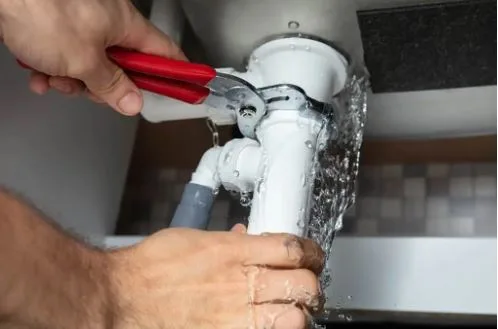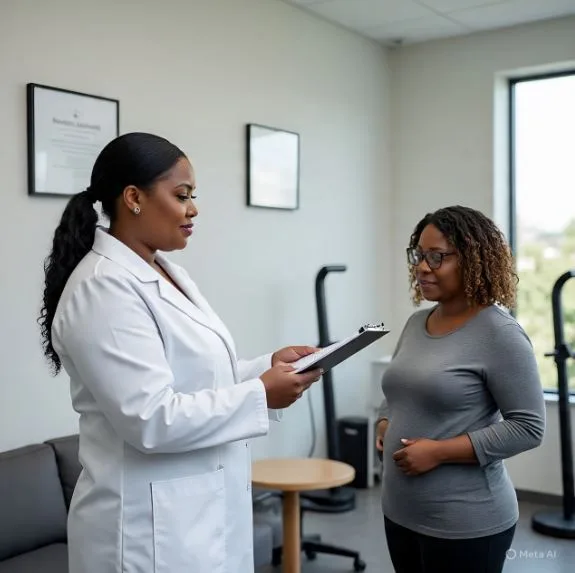Are You Making These Mistakes with Emergency Plumbing Repairs?
When plumbing emergencies strike, panic often takes over. A burst pipe, an overflowing toilet, or a water heater malfunction can make even the calmest person feel overwhelmed. In these moments, the pressure to act quickly can lead to costly mistakes. Emergency plumbing repairs are stressful enough without adding unnecessary errors into the mix. Knowing what to avoid can save you time, money, and frustration. Here are the most common mistakes homeowners make during emergency plumbing repairs and how to steer clear of them.
Ignoring the Shut-Off Valve
One of the most common mistakes during a plumbing crisis is failing to shut off the water supply immediately. Every home has main and fixture-specific shut-off valves. If a pipe bursts or a faucet starts gushing water, turning off the nearest valve should be your first step. Homeowners who scramble to grab towels or buckets before stopping the flow often make the damage worse. Familiarize yourself with the location of your shut-off valves before an emergency happens so you can act fast when the situation demands it.
Overusing Chemical Drain Cleaners
When faced with a clogged sink or toilet, many people instinctively reach for chemical drain cleaners. These products may provide temporary relief, but they can corrode pipes, damage seals, and even worsen clogs. In the context of emergency plumbing repairs, pouring chemicals down the drain can complicate matters for the plumber who eventually arrives to help. Instead, try a plunger or auger to clear blockages. If those fail, call a professional rather than relying on harsh chemicals that could cause long-term damage.
Attempting DIY Repairs Without Proper Tools
A wrench and a roll of duct tape are not always enough for emergency plumbing repairs. Many homeowners attempt makeshift fixes with whatever tools they have on hand, only to create bigger problems. Using the wrong size wrench can strip fittings. Wrapping leaks with tape or cloth may provide temporary relief, but does little to address the underlying issue. Keep a basic plumbing kit at home with items like an adjustable wrench, plumber’s tape, and a plunger. Still, remember that most emergencies require more advanced tools and expertise than what’s in the average toolbox.
Underestimating the Severity of the Problem
It’s easy to downplay a minor leak or slow drain when life is busy. However, ignoring these small warning signs often leads to bigger emergencies. That slow drip from your faucet could be wasting gallons of water each week, increasing your utility bills. A sluggish drain could be the early sign of a serious blockage deeper in the system. During emergency plumbing repairs, don’t convince yourself that it’s “not that bad.” By underestimating the severity, you risk allowing a manageable issue to spiral into a full-blown crisis.
Using Too Much Force
When pipes are clogged or fittings are stuck, some homeowners believe brute force is the answer. Unfortunately, applying too much pressure can crack pipes, break joints, or damage fixtures. For example, cranking down on a pipe wrench too hard might snap a connection, turning a simple leak into a burst pipe. Plumbing systems are designed to handle pressure in specific ways, and over-tightening or forcing components only leads to more damage. Always use gentle, steady pressure and the right tools.
Forgetting to Turn Off Power Sources
Plumbing emergencies don’t just involve water. Appliances like water heaters, washing machines, and dishwashers also connect to electricity or gas. A common mistake during emergency plumbing repairs is forgetting to turn off these power sources. Working on a water heater without switching off the breaker, for instance, can be dangerous and potentially life-threatening. Always check for connected utilities before making any repairs. Safety should be the top priority in any plumbing emergency.
Calling the Wrong Professional
In the chaos of an emergency, many homeowners quickly call the first number they find online. Not all plumbers specialize in emergency plumbing repairs, and not every service is available 24/7. Choosing the wrong professional can mean waiting hours or even days for help while water damage continues to spread. To avoid this mistake, research and keep the contact information of a trusted emergency plumber handy before disaster strikes.
Skipping Documentation for Insurance
Flooding and water damage from plumbing emergencies can lead to costly repairs. Yet many homeowners forget to document the damage for insurance purposes. Taking photos and videos before any cleanup or repair work begins can help with claims. Without evidence, you may struggle to prove the extent of the damage. This oversight can result in higher out-of-pocket expenses. Always pause for a moment to capture the scene before starting emergency plumbing repairs or calling in help.
Cleaning Up Too Soon
While it’s natural to want to mop up water quickly, rushing into cleanup before identifying the source of the problem can mask the issue. For instance, drying floors without checking walls or ceilings may hide water that has seeped into structural areas. This trapped moisture can lead to mold and rot. During emergency plumbing repairs, focus first on stopping the source, then thoroughly investigate before cleaning up.
Neglecting to Follow Up After Repairs
Once the immediate crisis is over, it’s tempting to breathe a sigh of relief and move on. However, one of the most overlooked mistakes is failing to schedule a follow-up inspection. Emergency plumbing repairs often address the immediate issue but may leave underlying problems unresolved. For example, a burst pipe may be fixed, but the cause of the burst, such as high water pressure or corrosion, might still exist. Following up with a plumber ensures the root cause is addressed, preventing repeat emergencies.
Relying on Outdated Plumbing Knowledge
Homeowners sometimes apply outdated tips they heard from family or found online decades ago. Plumbing systems and standards evolve, and what worked in the past may not be safe or effective today. For example, older homes may have galvanized steel pipes that corrode differently from modern copper or PEX materials. Relying on old information during emergency plumbing repairs can lead to costly errors. Trust current professional advice and updated practices instead of outdated DIY shortcuts.
Ignoring Preventative Maintenance
The best way to avoid emergency plumbing repairs is through regular maintenance. Yet many homeowners neglect simple preventative steps such as flushing water heaters, checking for leaks, or cleaning drains. Skipping maintenance increases the likelihood of sudden failures. Preventative care may feel like an inconvenience, but it costs far less than the damage from an emergency. Scheduling annual plumbing inspections is one of the most effective ways to avoid being caught off guard.
Trusting Online Hacks Over Professionals
The internet is filled with quick-fix hacks for plumbing problems, from using vinegar and baking soda to strange DIY gadgets. While some of these tips may work for minor inconveniences, they are rarely suitable for emergencies. Trusting an unverified hack during emergency plumbing repairs can waste valuable time and worsen the situation. Professional plumbers train for years to handle crises efficiently. When an emergency strikes, skip the gimmicks and rely on expert assistance.
Not Having an Emergency Plan
Finally, one of the biggest mistakes is not preparing at all. Many households lack a clear plan for what to do when plumbing disasters occur. Without a plan, precious time is wasted deciding who to call, where the shut-off valve is, or how to contain the water. Creating a simple emergency plan for plumbing issues can make a huge difference. This plan should include knowing shut-off valve locations, keeping plumber contact information accessible, and having basic tools on hand.
Final Thoughts
Plumbing emergencies are stressful, but they don’t have to be devastating. Avoiding these common mistakes can minimize damage, reduce repair costs, and keep your home safe. Emergency plumbing repairs require quick thinking, but rash decisions often lead to bigger problems. By preparing ahead of time, staying calm, and knowing when to call a professional, you can navigate any plumbing crisis with confidence.




